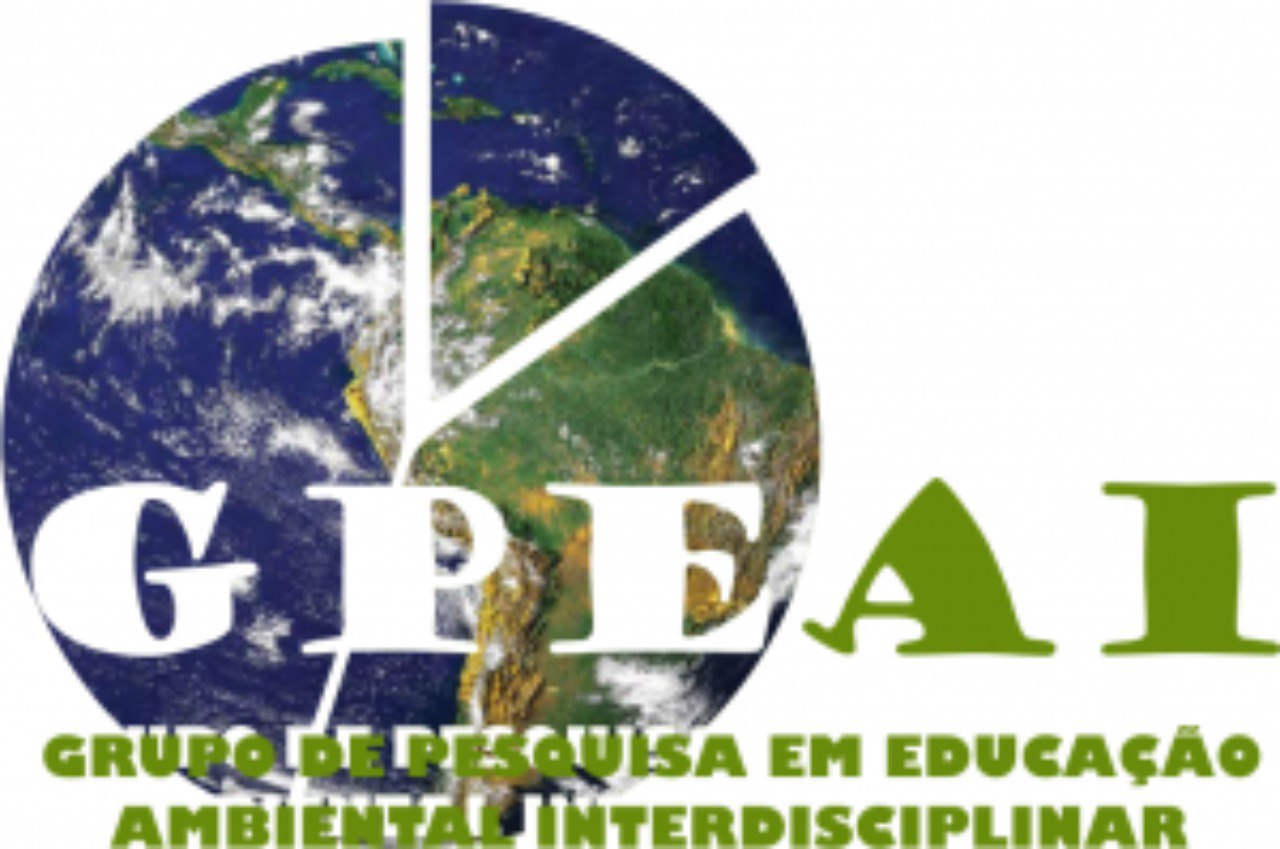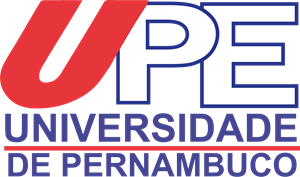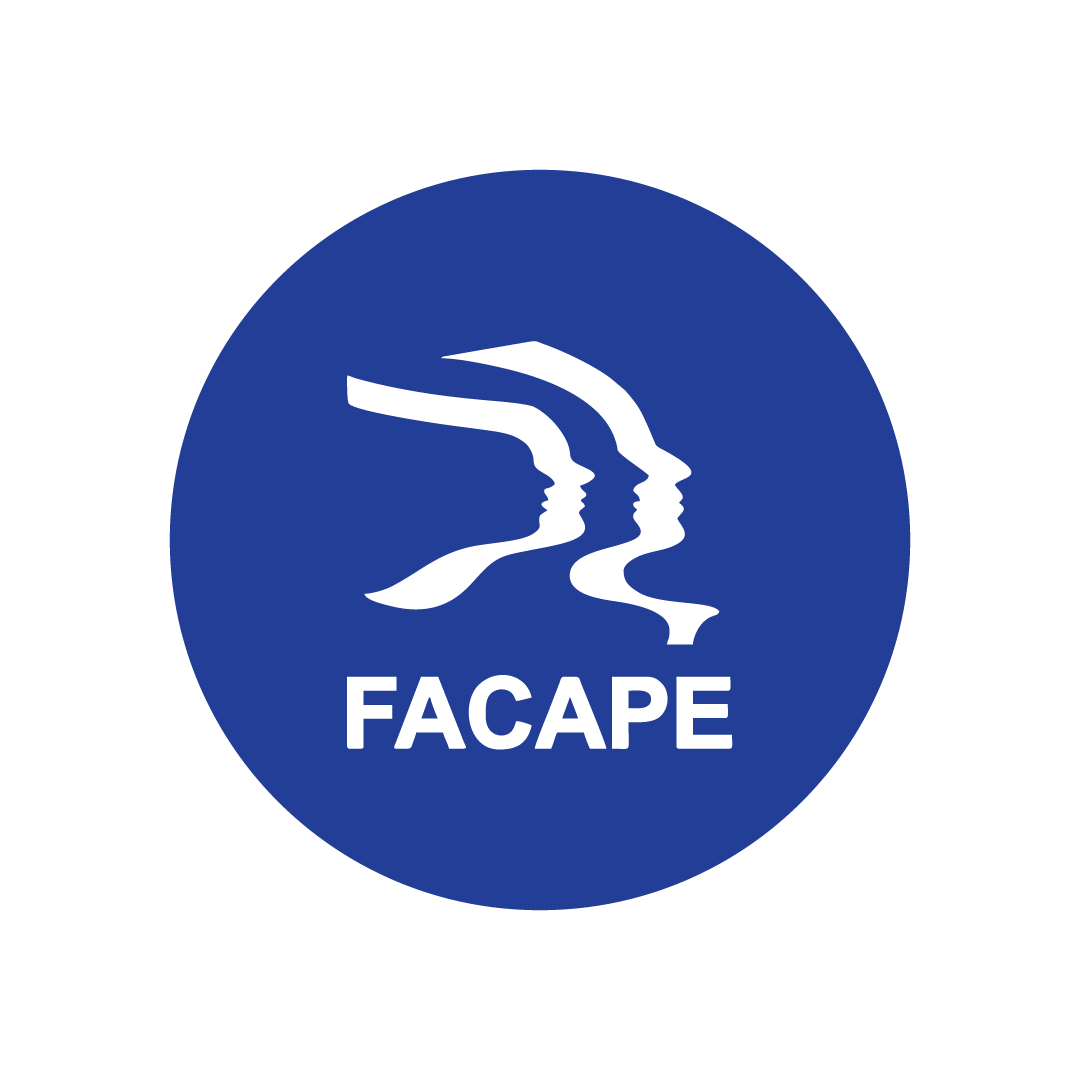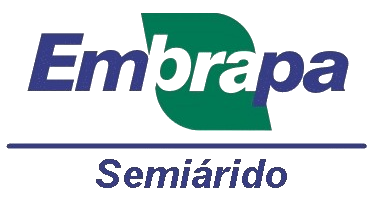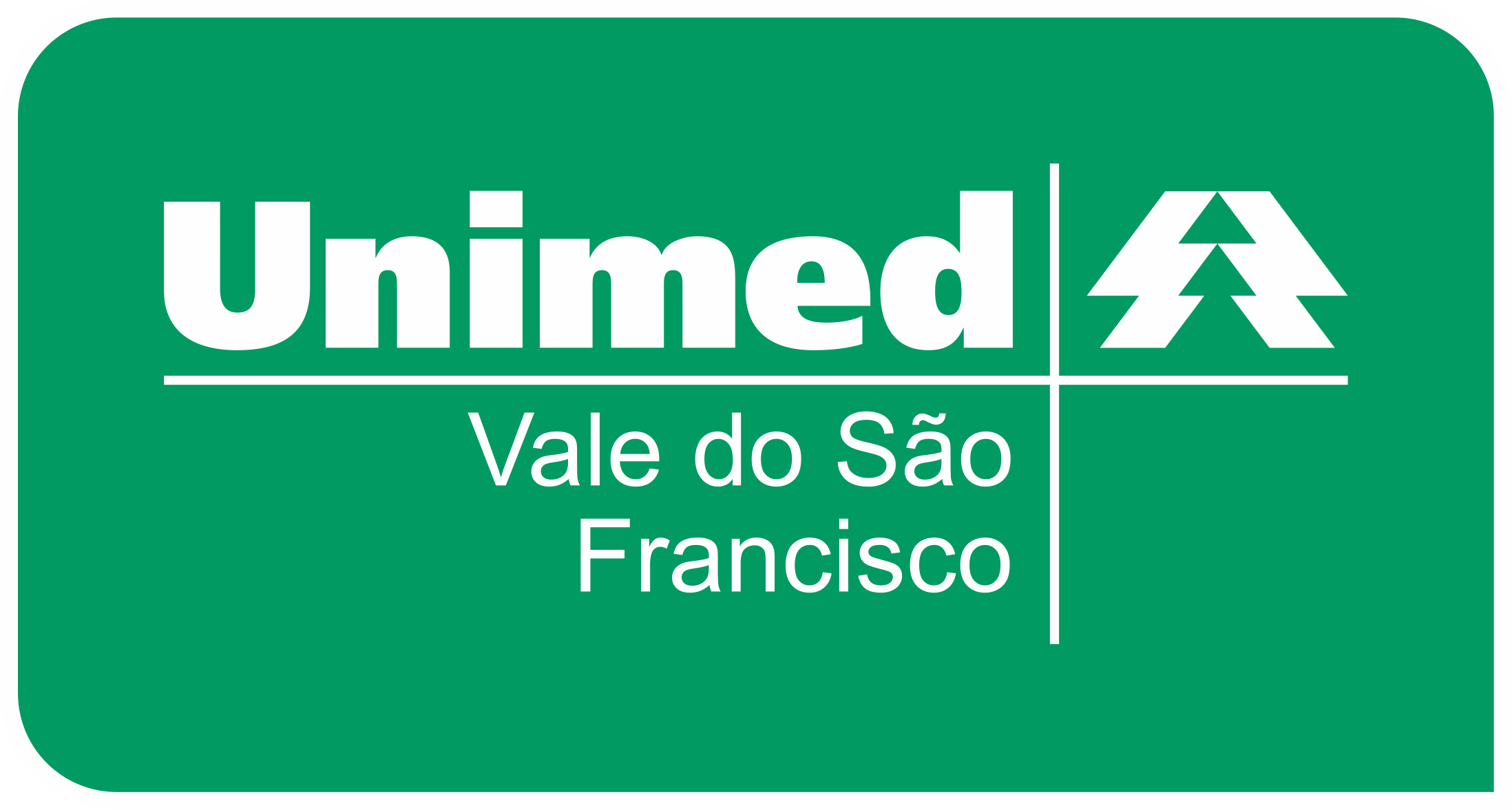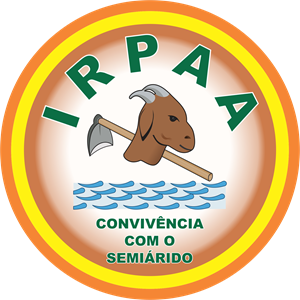Statute
STATUTE AND BYLAWS
INTRODUCTION
This document regulates the Statute and Internal Rules of Revista Verde - Green Journal , founded on the initiative of the Escola Verde Program and the Research Group on Interdisciplinary Environmental Education, which are linked to the Federal University of Vale do São Francisco (UNIVASF), University of Pernambuco (UPE), State University of Bahia (UNEB), Faculty of Petrolina (FACAPE) and Federal Institute of Sertão Pernambucano ( IFSertãoPE ).
Revista Verde - Green Journal was created in October 2021, with the aim of being an international scientific publication, edited by the Escola Verde Program and the Research Group on Interdisciplinary Environmental Education, to contribute to the dissemination of new academic and scientific discussions, results of extension activities and research related to socio-environmental issues and environmental sustainability.
The focus of the magazine is socio-environmental issues, as well as the major academic, technical and political debates around these issues. The magazine's approaches are plural, interdisciplinary or specific to an area, as long as they address essential dimensions of sustainability and encourage interdisciplinary thinking.
From this perspective, the magazine intends to contribute to the process of strengthening a space for academic and political dialogue and the exchange of ideas, collaborating with the elaboration of public policies in favor of sustainability in Brazil and in the world.
The goal is to constitute a scientific journal of impact and academic excellence and social relevance, in Brazil and internationally.
JUSTIFICATION
The challenge of presenting the public with a magazine of quality in its content and format were factors that motivated the professors and researchers, members of the Escola Verde Program, to gather strength for the launch of Revista Verde - Green Journal and for it to have reach and regularity in the publications. edits.
We take as a reference the definition of journal, or scientific journal, given by the Coordination for the Improvement of Higher Education Personnel (CAPES), as a serial publication, arbitrated and aimed primarily at the academic-scientific community, framed in the norms of the American Psychological Association ( APA ) .
The Green Journal - Green Journal seeks to be in line with the main indexes in the world that classify journals based on criteria and parameters related to the amount of access, the knowledge disseminated and the impact of articles published in international academic communities. For Brazil, the two main indexes that will be sought for the institutionalization of Revista Verde - Green Journal are Qualis, from Capes, and the Online Scientific Electronic Library (SciELO), whose international recognition serves as a parameter.
BRIEF HISTORY
Revista Verde - Green Journal was born from the experience and reflections that have been carried out, within the scope of the Green School Project, with the interdisciplinary activities of Environmental Education, which have been developed since 2011 together with Higher Education Institutions, basic education schools , communities and other institutions, especially in the municipalities of Vale do São Francisco, Petrolina (PE) and Juazeiro (BA).
The search for knowledge and transformation of realities has always been a strong motivation present in the actions of the Escola Verde Program, through research and mobilizations developed since its foundation in 2011. Factor that forms the fundamental basis on which the formulation of the proposal of Revista Verde is based - Green Journal .
In this process, the activities developed for the organization and realization of the five editions of the Brazilian Congress of Interdisciplinary Environmental Education (COBEAI), as well as other academic events and publications of books, articles, theses and dissertations, by professors and students, in the scope of the Green School Program.
As we move forward in mobilizing knowledge and promoting new ideas about socio-environmental phenomena, we observe that such knowledge tends to remain restricted to academic events, books and other publications that limit the reach of interdisciplinary debate due to the editorial lines set in areas knowledge specific.
Noting these difficulties and limitations in publishing scientific papers on environmental issues from an interdisciplinary perspective, the members of the Escola Verde Program decided to commit efforts to founding Revista Verde - Green Journal in the second half of 2021, in celebration of the 10th anniversary of the project.
GOAL
The main goal of Revista Verde - Green Journal is to become a national and international reference in the systematic publication of scientific works on socio-environmental themes in an interdisciplinary perspective.
We hope that our journal will be indexed in SciELO and reach the A2 classification in Qualis, in 2026, and A1 in 2031. For this, we concentrated efforts on the institutionalization and strengthening of the journal.
We seek to reduce academic endogeneity as much as possible, inviting new members to the Scientific Advisory Board, of which at least 40% must be linked to foreign entities. At the same time, we intend to gradually increase the number of articles per issue to ensure at least 40 articles per year by 2023, of which 40% must be published in English and/or Spanish.
To improve and expand the journal's indexing, all publications will have Digital Object Indentifier -DOI and will follow the parameters and nomenclatures established by SciELO ; in addition to adapting the journal, in the medium term, to the international system of citation metrics.
Some editions may be released at national and international Congresses held by the Green School Program or similar.
STATUTE
CHAPTER I
PURPOSE AND OBJECTIVES
Art. 1 Revista Verde - Green Journal is a scientific journal of the Escola Verde Program and the Research Group on Interdisciplinary Environmental Education, registered with the Ministry of Education and the National Council for Scientific and Technological Development (CNPq), and linked to Higher Education Institutions of the São Francisco Valley, Federal University of the São Francisco Valley (UNIVASF), University of Pernambuco (UPE), State University of Bahia (UNEB), Faculty of Petrolina (FACAPE) and Federal Institute Sertão do Pernambucano ( IFSertãoPE ).
Art. 2º Revista Verde - Green Journal will be governed by this Statute and by the provisions that apply to it.
Art. 3º Revista Verde - Green Journal is a peer-reviewed, indexed scientific journal with national and international dissemination and circulation, published by the Green School Program.
Art. 4th Revista Verde - Green Journal aims to present, disseminate and promote the exchange of current and relevant scientific productions on contemporary themes in the areas of environment and sustainability, aiming at plurality and interdisciplinarity, both in approaches and scientific methodologies.
Art. 5th Revista Verde - Green Journal follows the standards and metrics of renowned journals in the national and international scientific community.
Art. 6th Revista Verde - Green Journal publishes scientific articles, review articles, essays, reviews and experience reports, as long as they are unpublished and on topics related to socio-environmental issues and environmental sustainability, arising from research and studies with an interdisciplinary approach.
CHAPTER II
EDITORIAL STRUCTURE
Art. 7º The editorial structure of Revista Verde - Green Journal is composed of the following instances:
I - Chief Editors, directly responsible for publishing the journal;
II - Editorial Secretariat, in charge of supporting the editors-in-chief in editing the journal;
III - Electronic Publishing, responsible for the development and management of the magazine's electronic media;
IV - Executive Board, responsible for the development and management of the journal;
V - Editorial Board, the highest instance of Revista Verde - Green Journal , in charge of deciding the journal's editorial policies and issuing opinions;
VI - Scientific Advisory Board, formed by members of several national and international institutions, responsible for analyzing and proposing guidelines and editorial strategies for the journal;
VII - Board of Ad hoc Reviewers , invited and approved by the Editorial Board, responsible for carrying out evaluations and issuing opinions on the works submitted for publication.
Single paragraph. The attributions and competences of the editorial structure will be defined by the Internal Rules.
CHAPTER III
EDITORIAL STRATEGY
Art. 8º The target audience of Revista Verde - Green Journal is made up of researchers, professors, students, formulators and executors of public policies who develop activities, studies and research on themes related to the thematic area of the magazine.
Art. 9º Revista Verde - Green Journal ensures Integrity in research and ethics in science and publications, which is why it will observe the guidelines contained in the following regulations:
I - The Singapore Declaration on Research Integrity, 2010;
II - The MCTI Code of Good Scientific Practices, 2015;
III - The CNPq Research Integrity Guidelines, 2011;
IV - The Joint Declaration of Integrity in Research, Ethics in Science and in Publications, of BRISPE, 2012;
V - The Guidelines of the International Committee on Ethics in Publications – COPE;
VI - Resolution of the National Health Council No. 510 , of April 7, 2016,8 which provides for the rules applicable to research in Human and Social Sciences.
Art. 10. Revista Verde - Green Journal 's main mission is to publish unpublished studies in article formats, both in its thematic dossier, as well as in continuous demand, interviews, reviews, experience reports and research.
Article 11. The publications of Revista Verde - Green Journal are publicly accessible and free of charge, available online , on the Revista's website, hosted on the domain of the Escola Verde Program.
Art. 12. Revista Verde - Green Journal intends to follow the guidelines and regulations of the indexing bodies and development agencies, regarding the origin of the authors and evaluators in 20% local/regional, 30% national, 50% international.
CHAPTER IV
FINAL PROVISIONS
Art. 13. This Statute may be reformed, in whole or in part, and at any time decided by the Editorial Board.
Art. 14. Revista Verde - Green Journal may be terminated by decision of 75% of the Editorial Board and approved by the Coordination of the Escola Verde Program.
Art. 15. Cases not covered by this Statute will be resolved by the Editors-in-Chief and/or the Board of Directors, with appeal to the Editorial Board.
Art. 16. The details and specificities of the entire editorial-administrative organization of Revista Verde - Green Journal will be defined in the Internal Regulations.
Art. 17. This Statute enters into force on the date of its publication.
REVISTA VERDE INTERNAL REGULATIONS - GREEN JOURNAL
CHAPTER I
DEFINITION AND PURPOSE
Art. 1. Revista Verde - Green Journal is a biannual publication of the Escola Verde Program and the Research Group on Interdisciplinary Environmental Education, and its operation will be governed by this Internal Regulation and by the provisions that apply to it, in accordance with the Statute.
Art. 2. Revista Verde - Green Journal publishes scientific articles, review articles, essays, reviews, technical notes, as long as they are unpublished, on socio-environmental themes or environmental sustainability, and arising from research and studies with an interdisciplinary approach.
Art. 3. Revista Verde - Green Journal uses the Creative Commons license CC BY-NC-ND 3.0, open access.
Art. 4. The main objective of Revista Verde - Green Journal is to disseminate the academic and scientific production of researchers and research groups, national and international, interdisciplinary, on socio-environmental issues and environmental sustainability, contributing to the exchange and promoting the dissemination of new knowledge .
CHAPTER II
COMPETENCIES AND RESPONSIBILITIES
Art. 5. All members of the organizational structure of Revista Verde - Green Journal are responsible for :
I - maintain secrecy and anonymity regarding authorship and submission of articles to the respective Ad hoc evaluators, during the period of analysis prior to publication;
II - ensure the quality and periodicity of Revista Verde - Green Journal , collaborating with the activities and demands necessary for publications;
III - seek to learn about the activities that are being developed and participate regularly in the meetings; and
IV - take the initiative to solve problems within its competence, within the scope of the Committee or position held in the journal, in accordance with these regulations, and collaborate with the activities of other sectors when necessary.
Single paragraph. Absence from activities, attributions, demands for publishing the Revista Verde – Green Journal and meetings, being three continuous meetings or five meetings alternately without justification, will result in the participant's dismissal.
Art. 6. The Editor-in-Chief is responsible for:
I - deliberate , guide, administer, supervise and facilitate the activities to be developed for publications;
II - propose priorities, procedures and norms related to editorial activities;
III - call ordinary meetings of the Editorial Board;
IV - chair the meetings of the Editorial Board;
V - answer for the journal before the higher bodies and demands requested;
VI - publish a call notice for papers, stipulate deadlines, request work schedules and enforce the stipulated deadlines;
VII - represent the Editorial Board in scientific, academic, cultural and professional meetings;
VIII - designate members of the Editorial Board to represent it, when necessary;
IX - propose the temporary or permanent replacement of any member of the Editorial Board, duly justified;
X - evaluate and approve ad hoc reviewers to assist in the evaluation of publications;
XI - prepare a reference term/basic project, with the due specifications, for the acquisition of volumes/copies of the journal;
XII - analyze, classify and approve, or reject, the works received, meeting the criteria stipulated in the specific regulations;
XIII - propose and forward modifications to be made by the authors, when applicable;
XIV - carry out communication and inform the authors about the progress of the opinions to their works, when they are accepted or not and the corresponding motivation;
XV - avoid endogeny by encouraging the participation of authors and evaluators from abroad or from outside the institution;
XVII – monitor, together with Electronic Publishing, the elaboration of editorial and graphic projects;
XVIII - supervise the edition, assembly and layout of publications;
XX - approve Ad referendum new members for the Ad hoc Board of Reviewers , for subsequent approval by the Editorial Board;
XXI - prepare, together with the Finance Board, the budget and the annual accountability reports, to be presented to the Editorial Board;
XXII - preparing reports for the external evaluation bodies, as requested by higher authorities; and
XXIII - comply with and ensure compliance with this Internal Regulation and the Statutes of Revista Verde - Green Journal .
- 1st Each editor-in-chief will have a mandate of 04 (four) years, and may be reappointed to the position by the Editorial Board, only once, in agreement with the Board of Directors.
- 2nd Controversial decisions for the development of Revista Verde - Green Journal must be taken jointly by the editors-in-chief. If there is no consensus, the Executive Director is consulted, as a casting vote. If the tie persists, the Editorial Board is consulted.
Art. 7. The Publishing Secretariat is responsible for:
I - Receipt and forwarding of processes and letters;
II - guide the preparation and strive for the quality of editorial and graphic projects;
III - take care of receiving articles for publication and distribution for the opinions of the Committee of Ad hoc Reviewers , according to the flow or indication of the Editorial Committee and Editors-in-Chief;
IV - control the review work, proposing in advance to the Editorial Board a Schedule to be carried out each year;
V - organize and control the magazine's distribution systems;
VI - prepare , together with the Finance Board, the budget and the annual accountability reports, to be presented to the Editorial Board and higher bodies;
VII – prepare, together with the Finance Board and the Editors-in-Chief, financing projects and rendering of accounts for development agencies;
VIII - participate in meetings of the Editorial Board;
IX - assist in maintaining the journal's website;
X - monitor and guarantee certificates and declarations for referees and authors;
XI - report the work evaluation, made by external reviewers, to their peers;
XII - issue certificates when necessary; and
XIII – prepare minutes of the Editorial Board meeting.
- 1 The Editorial Secretariat will have a term of office of 04 (four) years, and may be reappointed to the position by the Editorial Board, only once, in agreement with the Executive Board.
- 2nd Controversial decisions must be taken jointly with the editors-in-chief. If there is no consensus, the Executive Director is consulted, as a casting vote. If there is no consensus, the Executive Director is consulted, as a casting vote.
Art. 8. The duties of Electronic Publishing are:
I - manage, supervise and facilitate the activities to be developed for electronic publications on the Revista Verde - Green Journal website ;
II - take care that the editing and publication of the journal is in accordance with good practices related to standardization, spelling and grammatical review of published texts;
III - define parameters for the covers and composition of the magazine;
IV - operate the Journal's OJS – Open Journal Systems , maintaining the dissemination of updated publications;
V - operate and monitor the magazine's digital indexing and dissemination processes;
VI - provide technical support regarding the customization of the specific system, maintaining the necessary contacts with the body and persons responsible for the Systems;
VII - disseminate and guide authors on the layout, graphic composition of publications and necessary procedures for the presentation and submission of works; and
VIII - propose changes aimed at improving and evolving the procedures related to the electronic and media systems of Revista Verde - Green Journal .
- 1º Editoração Eletrônica will have a mandate of 04 (four) years, and may be reappointed to the position by the Editorial Board, only once, in agreement with the Executive Board.
- 2nd The most important decisions for the development of Revista Verde - Green Journal must be taken together with the Editors-in-Chief. If there is no consensus, the Executive Director is consulted, as a casting vote.
Art. 9. The duties of the Executive Board are:
I - Direct and expedite the activities to be developed for the publications of Revista Verde - Green Journal ;
II - Supervise and report problems with the edition and publication of the journal to the Editorial Board;
III - Represent the Journal in the absence of the Editors-in-Chief; and
IV - Collaborate with the Editors-in-Chief and the Editorial Board.
Art. 10. It is incumbent upon the Executive Director:
I - inform and approve changes in the composition of the Editorial Board;
III - propose changes to the Editorial Board;
IV - coordinate meetings in the absence of the editors-in-chief; and
V - decide , together with the Editors-in-Chief, referrals for publication of the journal.
Art. 11. It is incumbent upon the Finance Board:
I - supervise and manage the finances of Revista Verde - Green Journal ;
II - develop financial reports annually and present them to the Editorial Board and other bodies as necessary;
III- open and manage the Journal's single bank account, reserved exclusively for this purpose;
Art. 12. It is incumbent upon the Communication Board:
I - develop and monitor the execution of the annual marketing and dissemination plan for the Journal;
II – present , at the end of each year, the Marketing Plan proposal for the following year, together with the editors-in-chief and the Editorial Board;
III - develop media material, such as cards, videos, pamphlets, texts, etc. , aimed at promoting the magazine, before and after its release;
IV – systematically disseminate the Revista Verde - Green Journal to universities, research centers, public and private institutions, and to the general population;
V - collaborate with the magazine's editing and design; and
VI - develop, manage and keep up to date the social networks of Revista Verde - Green Journal , such as Facebook, Instagram, Twitter, etc.
- 1 Each Director will have a term of office of 04 (four) years, and may be reappointed by the Editorial Board, only once
- 2 The most important decisions for the development of Revista Verde - Green Journal must be taken together with the other members of the Board. If there is no consensus, the Editors-in-Chief are consulted, as a casting vote. If the tie persists, the Editorial Board is consulted.
Art. 13. The Editorial Board is responsible for:
I - collaborate directly with the editors-in-chief on the demands of Revista Verde - Green Journal ;
II - define and review the journal's editorial policy, as well as decide on the aspects of its operation that are not explicit in these Internal Regulations;
III - schedule administrative meetings or call extraordinarily when necessary;
IV - improve the quality of the publication, promote and publicize the magazine;
V - avoid endogeny, by encouraging the participation of authors and evaluators from abroad or from outside the institution;
VI - select articles, dossiers and reviews that will make up each issue;
VII - ensure the originality of scientific articles;
IX - ensure respect for norms relating to good scientific practices, ethics and research integrity;
X - invite, evaluate and approve nominations of specialists to compose the Scientific Advisory Board and Ad hoc Board of Evaluators ;
XI - strive for the technical-scientific quality of the journal, the regularity of its publication and the administration of editorial management, with a view to maintaining its quality and attractiveness;
XII - carry out communication with authors and reviewers, including with regard to the results of evaluations of articles submitted to the journal;
XIII - define and maintain the editorial policy of Revista Verde - Green Journal and establish the criteria for its execution;
XIV - to establish and keep up-to-date the norms for publication and publishing;
XV – propose thematic editions to be published;
XVI - monitor the editing process of each issue of Revista Verde - Green Journal ;
XVII - commit to the frequency of publications;
XVIII - propose changes that allow the improvement and evolution of the magazine's “Qualis” concept;
XIX - define strategies to improve the journal's impact factor and indexing;
XX - identify and forward omitted cases for the smooth running of the journal;
XXI - to define the opinion model that will be used for evaluation by the Scientific Advisory Board;
XXII - capture scientific articles;
XXIII - receive opinions;
XXIV - issue an opinion on the evaluation of the works;
XXV - communicate the recommendations of the reviewers to the authors;
XXVI - deliberate on ordering articles from national and/or foreign authors;
XXVII - participate in at least one annual meeting of the group of editors;
XXVIII - define the theme of each edition at least three editions in advance (18 months) together with the submission schedule; and
XXIX - manage, when applicable, or seek incentives, through a project, and financial support.
- 1st The Editorial Board is the highest advisory and deliberative body of Revista Verde - Green Journal .
- 2nd The Editorial Board meets ordinarily to approve the publication of each issue of the journal, and extraordinarily, whenever necessary.
- 3rd Ordinary meetings are convened by the editors-in-chief or a member of the Board of Directors.
- 4th Extraordinary meetings may be convened by the chief editors, directors or at least 2/3 of the members of the Editorial Board.
- 5th Meetings can be face-to-face or via web conferences .
- 6 The quorum for ordinary meetings, on first call, is at least 50% + 1 of its members, with mandatory presence of the editors-in-chief. If there is no quorum, the editors-in-chief or the Executive Director may immediately reschedule the meeting, on second call, waiting for a minimum period of 30 minutes. On second call, the meeting is valid with any quorum, respecting a minimum of 03 members.
- 7th The members of the Editorial Board approve the names of Ad hoc consultants who carry out the analysis and evaluation of the articles.
- 8 Each member of the Editorial Board will have a mandate of 04 (four) years, and may be reappointed to the position only once.
- 9th In the event of a tie in votes, the casting vote will be the responsibility of the editors-in-chief and the Executive Director.
Art. 14. The Scientific Advisory Board is responsible for:
I - collaborate directly with the editors-in-chief on the demands of Revista Verde - Green Journal ;
II - improve the quality of the publication, avoid endogeny and give greater impact to the journal;
III - when requested, prepare presentation texts and editorials for the journal, associated with their research area and their academic experience;
IV - collaborate with editorial campaigns through graphics, social networks and the internet, to capture texts;
V - evaluate and judge , regarding form and merit, the articles forwarded by the Editorial Board and editors-in-chief, for their appreciation, issuing an opinion on them;
- 1 The Scientific Advisory Board will be made up of at least 20 (twenty) and at most 30 (thirty) renowned professionals, with recognized expertise, preferably external to the Escola Verde Program, all from renowned universities and/or research institutions in Brazil and from abroad, respecting the following proportions: a maximum of 20% belonging to the Escola Verde Program, 40% of which must be linked to teaching and/or research institutions of national excellence and at least 40% must be linked to institutions of academic and/or scientific recognition International.
- 2 The members of the Scientific Advisory Board are chosen by the Editorial Board of Revista Verde - Green Journal , and may be appointed by any of the members of the organized structure of Revista Verde - Green Journal .
- 3rd The composition of the Scientific Advisory Board must be formed by a maximum of 20% of members with a minimum master's degree. Members with a lower title are not possible. After 2026, only a minimum doctor degree will be accepted.
- 4 The term of office of the members of the Scientific Advisory Board is 04 6 (four) years, which may be renewed only once
- 5 All areas and subareas of knowledge to which the journal is referenced have their representatives on the Scientific Advisory Board.
Art. 15. The Ad hoc Board of Evaluators is responsible for :
I - collaborate directly with the editors-in-chief on the demands of Revista Verde - Green Journal ;
IV - evaluate and judge the articles forwarded by the Editorial Board and editors-in-chief in terms of form and merit, issuing an opinion on them, within the established deadlines;
VII - maintain secrecy about the forwarding of articles.
- 1 There is no defined number of professors/researchers for the composition of the Ad hoc Board of Evaluators .
- 2 In each published issue of the journal, there will be a list of the members of the Board of Ad hoc Reviewers who collaborated with the issue.
- 3 The members of the Board of Ad hoc Reviewers are chosen by the Editorial Board of Revista Verde - Green Journal and may be appointed by any of the members of the organized structure of Revista Verde - Green Journal .
- 4 The term of office of the members of the Ad hoc Board of Evaluators is two (2) years, renewable only once.
- 5 All areas and subareas of knowledge to which the journal is referenced have their representatives on the Ad hoc Board of Reviewers .
Only those who are duly registered in the Revista Verde Reviewer Registration system - Green Journal , available on the journal's website, and approved by the editors-in-chief and/or Editorial Board , will be considered members of the Ad hoc Board of Reviewers .
- 7 The Board of Ad hoc Reviewers is made up of recognized researchers and scientific authorities, with at least a master's degree.
CHAPTER III
CHARACTERIZATION OF CONTENT AND PERIODICITY
Art. 16. The content and periodicity of the journal are:
I - be assigned ISSN - International Standard Serial Number , DOI - Digital Object Identifier and national and international indexers;
II - adopt American Psychological international standardization standards Association ( APA ) ;
III - publication in electronic format, online , through hosting on the Green School Program website;
IV – provide unrestricted access to publications, following the principle of publicity and dissemination of scientific knowledge to the public, aiming at the democratization of knowledge;
V - allow the total or partial reproduction of the contents, as long as the source is cited;
VI - seek the heterogeneity of subjects and themes, as long as they are centered on socio-environmental issues and/or environmental sustainability;
Art. 17. The publication of articles in the journal will not imply remuneration to the authors, reviewers and members of the editorial board, constituting an eminently voluntary work. But functions can be remunerated from the moment the Journal has the possibility to remunerate such functions, according to guidelines to be defined by the Editorial Board for each case.
Art. 18. Copyrights will be protected in accordance with current Brazilian and international legislation.
Art. 19. The publication of services, products or institutions is allowed, provided that they are compatible with the principles and purposes of the Journal and that it is approved by the Editorial Board.
Art. 20. Articles in Portuguese, English and Spanish are accepted, which are published in the original language, provided that they follow the norms of Revista Verde - Green Journal available on the journal's website, and may be in HyperText Markup Language (HTML), Portable formats Document Format (PDF) and Electronic Publication (EPUB).
Art. 21. The periodicity of publication is half-yearly, with the possibility of having more than two publications per year according to the demand and viability to be analyzed by the Editors-in-Chief and the Editorial Board.
Art. 22. The annual volume, composed of the two editions, must total at least 30 (thirty) articles, with citation and indexing potential.
Art. 23. Each edition will be devoted to one or two correlated themes related to socio-environmental and sustainability issues, defined by the Editors-in-Chief with the approval of the Editorial Board.
Art. 24. Revista Verde - Green Journal is characterized by interdisciplinary approaches, based on specific thematic editions, which cover several areas of knowledge.
Art. 25. Revista Verde - Green Journal is located, above all, in the Interdisciplinary area. Publications may have the bias of a specialty, but they should seek the guiding axis of interdisciplinarity of environmental issues and/or environmental sustainability.
Art. 26. Revista Verde - Green Journal has the following guiding principles:
I - in the area of Social Sciences: Agroecology and Family Farming, Traditional Communities and Coexistence, Ethnoscience , Landscape and Territory, Culture and Environment, Environmental Education and Epistemology, Social Movements, Environmental Public Policies, Society/Nature relationship, Human Ecology, Tourism , Sustainability and Development;
II - in the area of Environmental Technologies and Studies: Ecology, Biodiversity and its correlates, Geoprocessing, Water Resources, Remote Sensing, Modeling applied to the Environment, New Technologies, Sustainable Alternative Technologies, Biochemistry and Environmental Sanitation, Pollution, Climate Change and Water Resources , Precision Agriculture, Agroindustry and its derivatives;
III - in the area of Planning, Health and Environment: Conservation and Preservation of Natural and Social Heritage, Environmental Governance, Environmental Management, Environmental Indicators, Environmental Health, Pathosalutogenesis , Comprehensive Health, Public and Collective Health, Healthy Food, Environmental Economy, Services Ecosystems and their processes, Planning, Urban Development and Problems of Cities, Solid Waste Management; and
IV - Other axes, areas and themes may be defined by the Editorial Board for special editions.
Art. 28. For purposes of organization and classification, Revista Verde - Green Journal follows the following scale of predominance of Areas of Knowledge:
I – Interdisciplinary;
II – Education;
III - Exact and Earth Sciences;
IV - Human Sciences;
V – Engineering;
VI - Health (Health Sciences);
VII – Administration;
VIII – Technology; and
IX - Multidisciplinary Management and Organizations.
Art. 29. The magazine may have its contents presented in the following editorial sections:
I - editorial : matter of responsibility of the editor, who may invite national or international authorities to write it;
II - article : originating from original research, dedicated to the publication of concluded works or with partial conclusions, resulting from original or review research. Articles will be unpublished in journals of any kind, as well as in book chapters (published). The author will be civilly and criminally liable for the inauthenticity of the submitted work, with the Editorial Board authorized to withdraw the article, when so detected. The articles must correspond to the thematic areas of the journals;
III - review: it is the narrative, descriptive or dissertation work, in which the properties of a given work are described, summarized and presented its conclusion, its methodology, the author's theoretical reference is exposed, an evaluation is presented of the work, the target audience is indicated . It must be synthetic, interpretive and critical.;
IV – interview : space for the publication of opinions and/or statements by professionals in the areas of knowledge of Revista Verde - Green Journal that involve pertinent socio-environmental issues, formulated succinctly and with a restricted answer to the question formulated, with the indication of the interviewed person, title and summary of professional activities;
V – theoretical essay : is the analysis of theoretical contents, taking into account the questioning of existing models and the elaboration of hypotheses for future research. General specifications identical to those of the research reports;
VI - bibliographic review: comprehensive analysis of the literature on a subject of interest to the areas of knowledge of Revista Verde - Green Journal , covering the main journals in the area at national and international level;
VII – technical note: category of scientific manuscript that describes a technique, a new species or observations and surveys of limited results, but with the same value as a scientific article, as it is based on its content and scientific merit. However, it may be a preliminary, simple and non-definitive work on a given subject, with publication justified by its originality and contribution to the area; and
VIII – translation: adaptation or translation into Portuguese of unpublished works in Brazil, according to the aforementioned types. The translator must possess and present a document authorizing the author or copyright holder to publish or use the original work, if it is not in the public domain (70 years after the author's death), in accordance with the Berne Convention.
Single paragraph. At least 50% of the Bibliographic References of each work must be from works published less than 5 (five) years ago.
CHAPTER IV
EDITORIAL PROCESS
Art. 30. The editorial management of Revista Verde - Green Journal follows the following guidelines:
I - works in Portuguese, English and Spanish are accepted, which are published in the original language, with an abstract in the native language and another in English.
II - publications are defined in the limit proportion of 20% of endogenous works by researchers from the Escola Verde Program and 30% by researchers from other institutions in Brazil. Seeking to have at least 50% of publications by authors linked to foreign institutions.
Art. 31. The evaluation of articles must follow the following procedures:
I – the appraisal process examines the works with criteria around their adequacy, methodology, elaboration, scientific rigor and ethics;
II - the publication of papers submitted to Revista Verde - Green Journal must be supported by the evaluation of at least 03 (three) reviewers, 02 (two) from the Ad hoc Review Board and/or the Scientific Advisory Board and 01 (one) the Editorial Board;
III – the Editorial Board makes the final decision based on the reviewers' analysis;
IV - the referees have a period of 30 (thirty) days to present the opinion. If this deadline is not met, the evaluation of the manuscript is forwarded to another reviewer;
V - in case of clearly contradictory opinions, the Editorial Board or the editors-in-chief must resort to an additional referee for a new evaluation or decide (tertius) on its publication based on criteria established in this regiment;
VI - the Editorial Board must guarantee the evaluation of the articles according to the double-blind process, in which the identity of the authors and reviewers will remain hidden throughout the manuscript evaluation process. The identity of the authors will be revealed after publication of the journal.
Art. 32. Each Thematic Edition is in charge of an Ad hoc Editor , invited by the editors-in-chief and evaluated and endorsed by the Editorial Board, which is responsible for organizing and selecting the articles for a given edition together with the editors-in-chief.
Art. 33. From the second edition of Revista Verde - Green Journal , authors will be charged a publication fee in order to cover expenses related to publishing the journal, the amount of which will be defined by the Editorial Board and published on the journal's website.
CHAPTER V
SUBMISSION AND EVALUATION
Art. 34. When submitting contributions by authors, the following instructions must be observed:
I - authors must register in the registration system available on the website of Revista Verde - Green Journal ;
II - authors must follow the Submission Rules available on the journal's website;
III - the submission must occur exclusively through the system available on the Revista Verde - Green Journal website ;
IV - the works published by Revista Verde - Green Journal must prioritize the seriousness of purposes and veracity of the facts presented, reveal critical and ethical sense, contribute to the development of science and knowledge of society. All work must contain information about the author(s): full name, academic title, professional affiliation and e-mail;
V - the participation of up to 4 (four) authors of the same work is limited; but depending on the article, the journal will accept a larger number to be analyzed by the Editorial Board. In the case of work with more than one author, the co-authorship data must be entered in the system , certifying the effective participation of all;
VI - the publication of an article automatically implies the full assignment of publication rights and permanent property rights to the respective Journal. The author must subscribe and forward, prior to publication, the Declarations available in the system;
VII - all works involving studies with human beings or animals, including organs and/or tissues separately, must be in accordance with Resolution CNS 196/96 and its complements, which deal with the Guidelines and Regulations for Research Involving Human Beings Humans. The author must present a document of approval by the Research Ethics Committee of the Institution, or of the service, or indication in a document informing the adequacy to the determinations contained in the Declaration of Helsinki;
VIII - submissions for publication in the journal can be made at any time (continuous flow process);
IX - the collaborator may publish a single work in the same issue of Revista Verde - Green Journal , with exceptions subject to approval by the Editorial Board;
X - all published works represent the opinion of the authors and do not reflect the policy of the Editors-in-Chief, the Board of Directors, the Editorial Board and the Institution to which the author is affiliated, unless it is declared and documented;
XI – Theses and Dissertations may be submitted and approved;
XII – the submission will have a specific charge for the admission of the work proposal, from the second edition onwards, for the maintenance of the journal, leaving it up to the Editorial Board to establish the values and costs to keep the journal always updated and with easy and free access; and
XIII - the payment of the fee does not imply approval of the work for publication. There is no return of values, regardless of the result of the evaluations.
Art. 35. The works will be evaluated according to the following aspects:
I - approach on the central theme of the specific edition of the magazine;
II - pertinence to socio-environmental issues and/or environmental sustainability;
III - interdisciplinary approach;
IV - novelty of the text;
V - research contribution level ;
VI - scientific quality;
VII - the development of the argument;
VIII - the textual organization;
IX - the social contribution of the theme; and
X – adequacy to the journal's norms.
Art. 36. The evaluators will have 03 (three) opinion options:
I - approved : the work is scheduled to be published without the need for revision;
II - approved with reservations: the work is forwarded to the author(s) for adjustments or reformulations and subsequent submission of a new version for final evaluation, which may then be approved or not approved; and
III - not approved: there is no possibility of publication of the work. The work is sent to the author with the observations and comments of the evaluators. The work may be re-presented in another edition, at a later semester, provided that the identified problems are approved by the ad-hoc evaluation process .
CHAPTER VI
EQUITY
Art. 37. All consumable, permanent material or resources obtained by Revista Verde - Green Journal through donations, public notices, assignments or any other legal modalities will be the property of the magazine and registered in Verde's assets, in accordance with current legislation.
Art. 38. The management of the assets of Revista Verde - Green Journal is carried out by the Finance Board, which must prepare financial and equity reports annually and present the rendering of accounts to the Editorial Board at the close of each annual cycle.
Art. 39. In the event of termination of the legal transaction of Revista Verde - Green Journal , its assets will be transferred to the Escola Verde Program, and in its absence , to universities and institutions represented on the Editorial Board, previously defined in a meeting
Art. 40. The financial transactions of Revista Verde - Green Journal will be carried out by the Finance Department, through a current account, opened, solely and exclusively, for the transaction of Revista Verde - Green Journal .
CHAPTER VII
OF THE FINAL AND TRANSITIONAL PROVISIONS
Art. 41. Cases not covered by this Statute will be resolved by the Editorial Board of Revista Verde - Green Journal , with appeal to the Coordination of the Escola Verde Program.
Art. 42. The nominal list of members of the organizational structure of Revista Verde - Green Journal must appear on the magazine's website, on the Internet.
Art. 43. This Regulation may be amended, in whole or in part, by the Editorial Board.
Art. 44. The submission and publication of the works will be free, without costs for the authors, in the first edition of Revista Verde - Green Journal . From the second edition, a submission fee will be charged to be borne by the authors or institutions to which they belong, whose value will be defined by the Editorial Board.
Art. 45. This Regulation enters into force on the date of its publication.
BIBLIOGRAPHY
APA STYLE. (2020). American Psychological Association . American Psychological Association ( APA ) . Retrieved October 20, 2022, from https://www.apa.org/#.
CODE OF GOOD SCIENTIFIC PRACTICE. (2021). FAPESP: Sao Paulo. Retrieved from https://fapesp.br/boaspraticas/.
CODE OF CONDUCT RESEARCH COUNCILS UK. (2021). United Kingdom. Retrieved from www.rcuk.ac.uk/documents/reviews/grc/goodresearchconductcode.pdf
CODE OF CONDUCT EUROPEAN SCIENCE FOUNDATION. (2021). European Union. Retrieved from www.esf.org/publications .
SINGAPORE DECLARATION ON RESEARCH INTEGRITY. (2010) Data: Rio de Janeiro, v. 53, no. 3. Retrieved from https://is.gd/Bcbvlf.
BYLAWS, BYLAWS AND WORK PLAN OF TEMPO DO MUNDO MAGAZINE. (2019). IPEA: Brasilia. Retrieved from https://www.ipea.gov.br/.
NATIONAL SCIENCE FOUNDATION PROCEDURES MANUALS. (2021). USA. Retrieved from https://www.nsf.gov/publications.
PROMOTING INTEGRITY IN SCHOLARLY RESEARCH AND ITS PUBLICATION. ( 2021). COPE: United Kingdom. Retrieved from https://is.gd/WHQ3NH.
INTERNAL REGULATIONS OF THE ONLINE BRAZILIAN JOURNAL OF NURSING. (2014). UFF: Rio de Janeiro. Retrieved from http://www.objnursing.uff.br.
REGULATIONS OF THE ELECTRONIC SCIENTIFIC JOURNAL RECIMA21- Revista Cientifica Multidisciplinary. Sao Paulo. Retrieved from https://recima21.com.br/.
Petrolina (PE). Brazil, September 29, 2021
PS:
Approved at a meeting held by the Escola Verde Program and the Editorial Board of Revista Verde - Green Journal , on 09/29/2021, through web conference .




















